1 of 29
Download to read offline
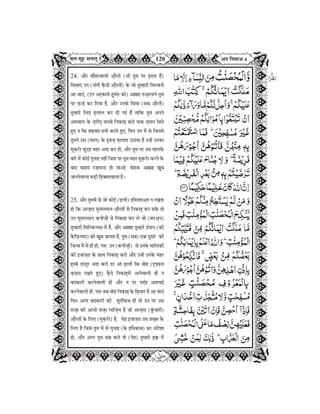
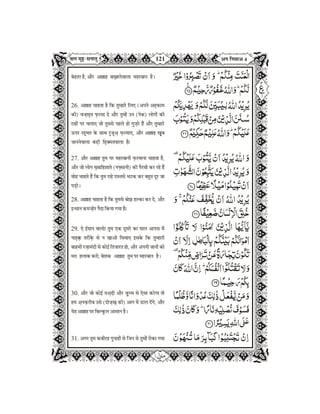
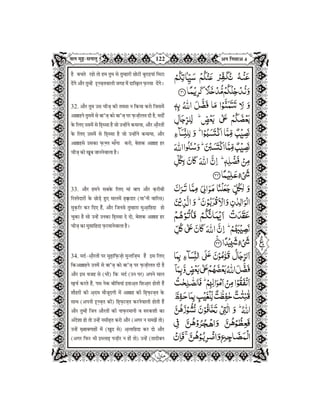
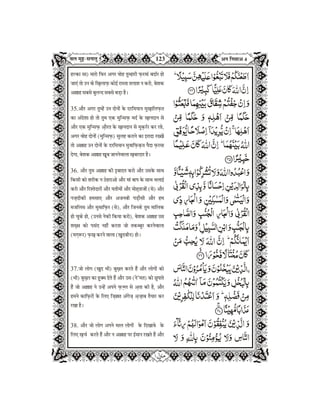
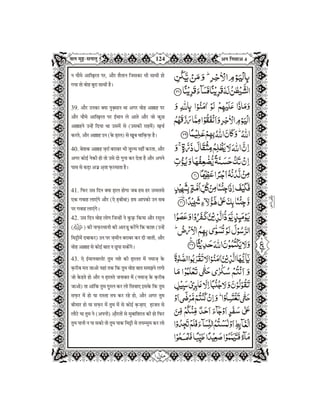
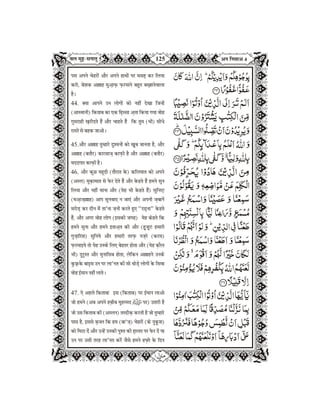
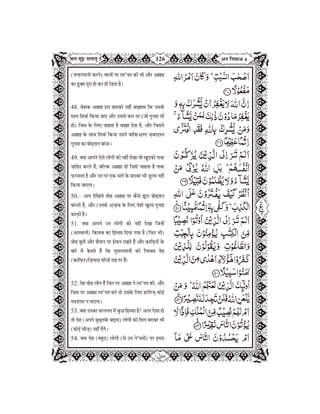
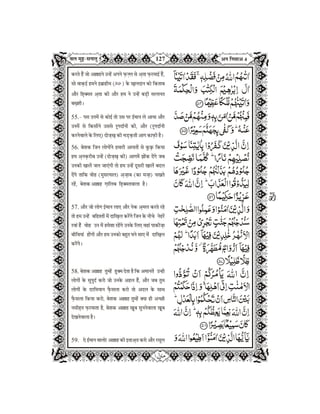
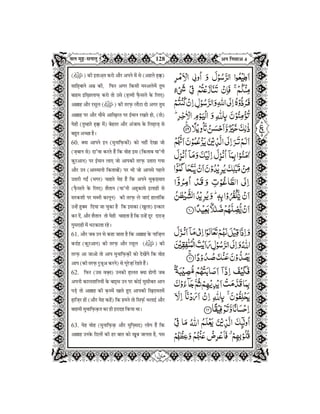
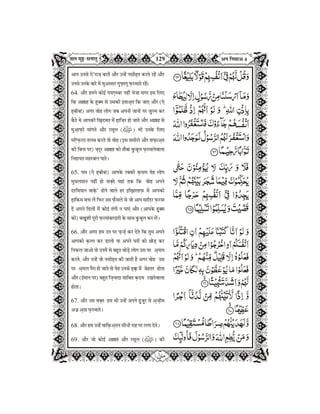
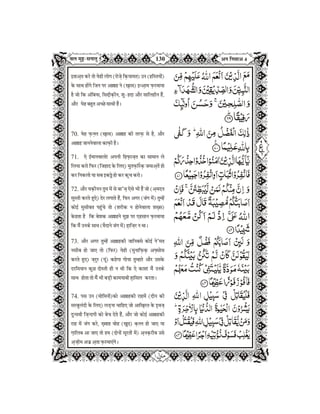
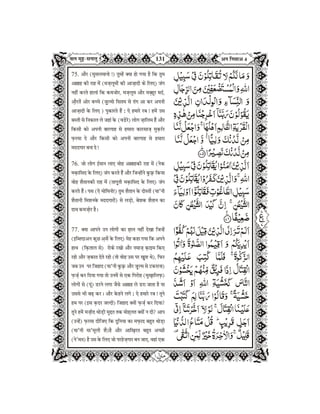
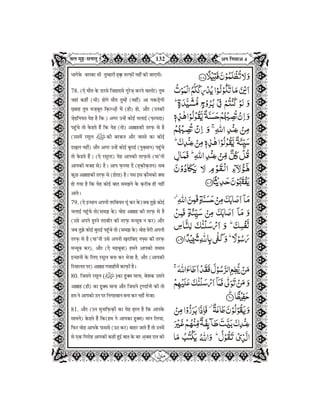
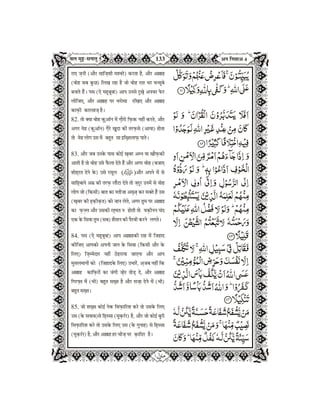
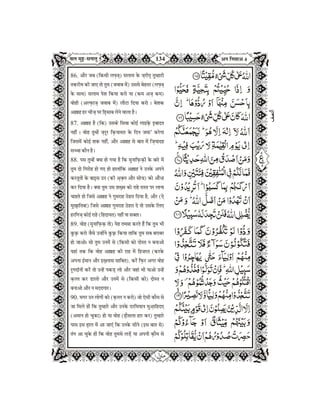
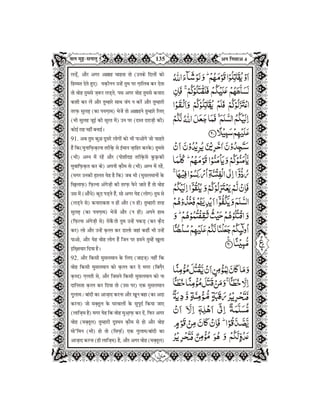
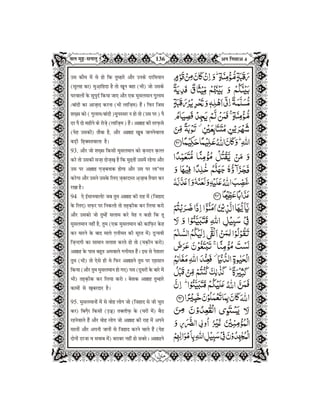
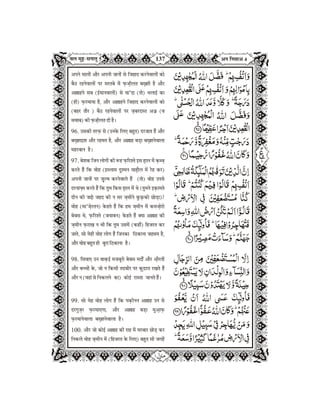
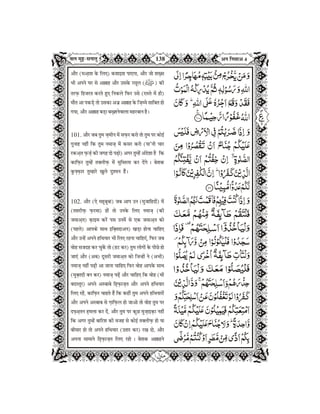
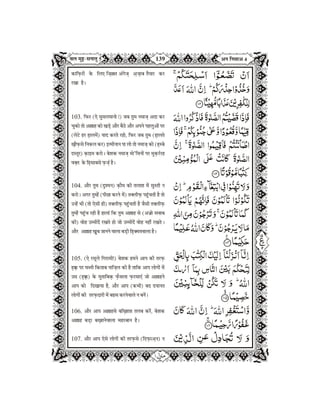
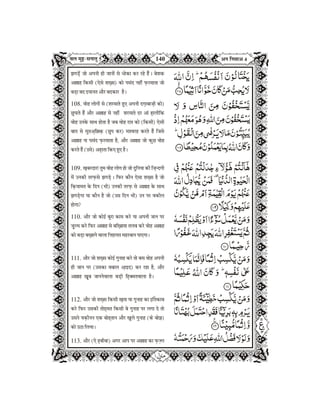
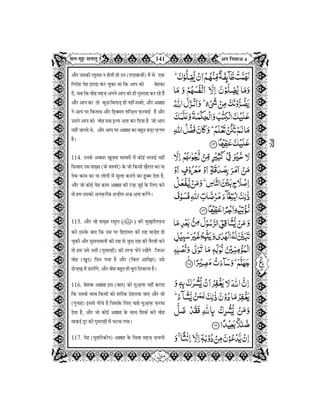
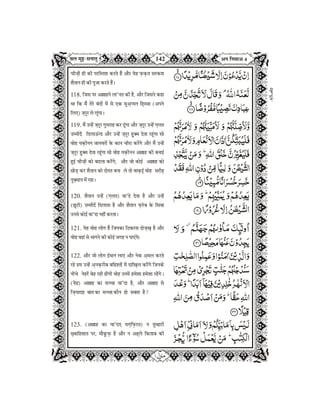
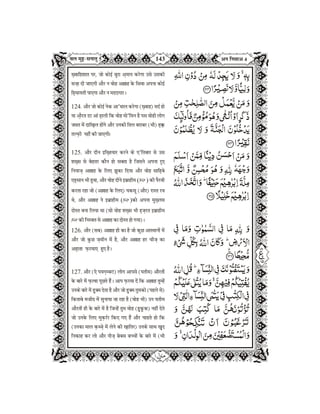
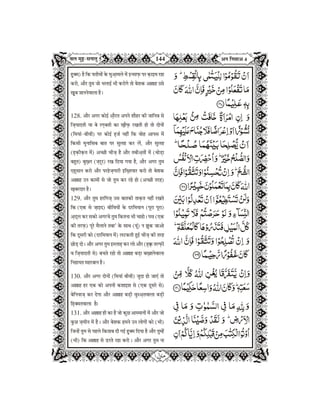
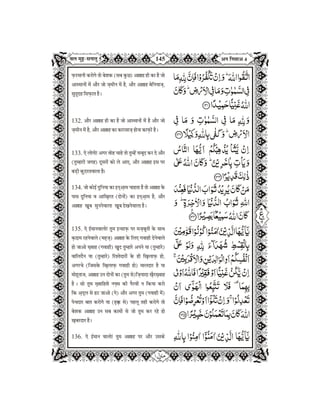
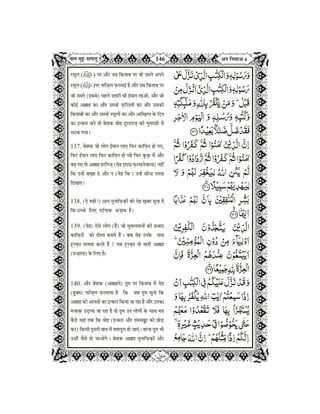
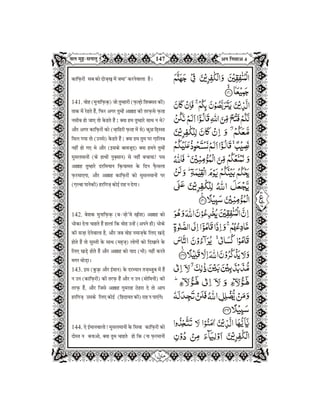
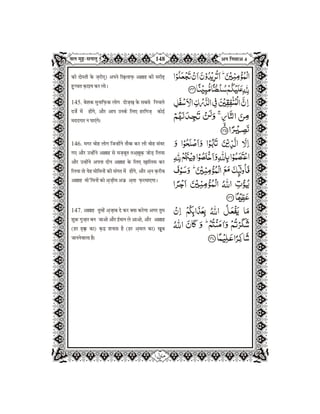
Ad
Recommended
The Glorious Ascension & Observations of Heaven
The Glorious Ascension & Observations of HeavenAhmed@3604
╠²
The document summarizes the Prophet Muhammad's miraculous night journey (Isra and Mi'raj) to heaven. It states that during his ascension, the Prophet observed the wonders of Jannah, including pearls and musk in the soil, four rivers (of water, milk, wine and honey), and large fruit. It also quotes hadith describing the Prophet's observations. In short, the document relates the key events and sights the Prophet witnessed during his miraculous night journey to heaven.Wonders of Fish
Wonders of FishAhmed@3604
╠²
This document is a translated booklet in English about the wonders and intriguing facts related to fish. It was written by Shaykh-e-Tar─½qat Am─½r-e-A─źl-e-Sunnat, the founder of Dawat-e-Islami. The booklet contains questions and answers about various fish species, their unique traits, health benefits of eating fish, rulings on different seafood, and other interesting information. It encourages the reader to learn about fish despite laziness through a dua before reading.A Brief Method of Hajj
A Brief Method of Hajj Ahmed@3604
╠²
This document provides instructions for performing Hajj according to the Qiran, Tamattu' and Ifrad methods. It explains the types of Hajj, how to make intentions for each, and outlines the rituals and supplications for each stage of Hajj including Arafat, Muzdalifah, Ramy ritual and Tawaf al-Ziyarah. Instructions are given for combining Maghrib and Isha prayers in Muzdalifah. The document aims to guide people in properly fulfilling the rites of Hajj.Benefits Of Durood Shareef
Benefits Of Durood ShareefAhmed@3604
╠²
This document provides 40 spiritual cures involving the recitation of Durood Shareef, which are short prayers invoking blessings on the Prophet Muhammad. Each cure involves reciting a particular Durood a specified number of times daily or weekly, and promises benefits such as protection from evil, relief from poverty or sickness, acceptance of supplications, and victory over enemies. The document stresses the importance of having faith in Allah's will if the desired results are not immediately seen.Blessings Of Khuwajah Ghareeb Nawaz (R.A)
Blessings Of Khuwajah Ghareeb Nawaz (R.A)Ahmed@3604
╠²
1) The document discusses the blessings of Sayyiduna Khuwajah Ghareeb Nawaz, a Sufi saint. It provides guidance on making intentions for attending religious gatherings and listening to sermons, including intentions to listen attentively and show respect.
2) It tells the story of the ruler of Sabzwaar whose cruel behavior was changed after Sayyiduna Khuwajah Ghareeb Nawaz glanced at him while praying in the ruler's orchard, causing the ruler to immediately repent.
3) The document emphasizes making good intentions, such as intending to gain religious knowledge and encourage others, when delivering religious talks or sermons.(Daughter's upbringing) Óż¼ÓźćÓż¤ÓźĆ ÓżĢÓźĆ Óż¬Óż░ÓżĄÓż░Óż┐ÓżČ
(Daughter's upbringing) Óż¼ÓźćÓż¤ÓźĆ ÓżĢÓźĆ Óż¬Óż░ÓżĄÓż░Óż┐ÓżČAhmed@3604
╠²
Upbringing daughter's in Islam / ( Óż¼ÓźćÓż¤ÓźĆ ÓżĢÓźĆ Óż¬Óż░ÓżĄÓż░Óż┐ÓżČ)Khawaja Ghareeb Nawaz (R.A) Óż½Óż╝ÓźłÓż£Óż╝ÓżŠÓż©Óźć Óż¢Óż╝ÓźŹÓżĄÓżŠÓż£ÓżŠ ÓżŚÓż╝Óż░ÓźĆÓż¼ Óż©ÓżĄÓżŠÓż£Óż╝ ž▒žŁ┘ģ█ā ž¦┘ä┘ä█ü ž¬ž╣ž¦┘ä█ī ž╣┘ä█ī█üAhmed@3604
╠²
Das Dokument enth├żlt wiederholte Verweise auf die Webseite www.dawateislami.net, und hat wahrscheinlich mit der Person Khwaja Ghareeb Nawaz zu tun. Es wurden keine spezifischen Informationen oder Inhalte bereitgestellt. Die Struktur des Dokuments l├żsst vermuten, dass es sich um eine nicht relevante oder unvollst├żndige Darstellung handelt. Method of Fatiha,
Method of Fatiha,Ahmed@3604
╠²
This document provides guidance on methods of sending rewards (F─ütißĖźaßĖź) to deceased parents and other Muslims. It shares five hadiths emphasizing the rewards for visiting parents' graves and making supplications for deceased Muslims. It encourages sending the rewards of good deeds, charity, and Quran recitation to deceased parents and others in the form of refulgent gifts. Reciting short supplications and surahs, such as at graveyards, can benefit countless deceased Muslims.Q&A About Hijab -( Óż¬Óż░ÓźŹÓż”Óźć ÓżĢÓźć Óż¼ÓżŠÓż░Óźć Óż«ÓźćÓżé ÓżĖÓźüÓżĄÓżŠÓż▓ Óż£ÓżĄÓżŠÓż¼ )
Q&A About Hijab -( Óż¬Óż░ÓźŹÓż”Óźć ÓżĢÓźć Óż¼ÓżŠÓż░Óźć Óż«ÓźćÓżé ÓżĖÓźüÓżĄÓżŠÓż▓ Óż£ÓżĄÓżŠÓż¼ )Ahmed@3604
╠²
.Method of Ghusl
Method of Ghusl Ahmed@3604
╠²
The document provides instructions for performing Ghusl (ritual bath) according to the Hanafi school of Islamic jurisprudence. It details the three obligatory acts of Ghusl as rinsing the mouth, sniffing water into the nose, and washing the entire body. It then explains how to perform each step, including making intention in the heart, washing hands and private parts, performing wudu, pouring water over the right shoulder, left shoulder, head and body. It stresses covering the private areas and maintaining modesty during Ghusl. After bathing, it is recommended to offer two rakats of prayer if it is not a prohibited time.Biography Of Zubair Bin Awwam (R.A)
Biography Of Zubair Bin Awwam (R.A)Ahmed@3604
╠²
This document summarizes the life of Sayyiduna Zubayr Bin ŌĆśAww─üm. It discusses his great status, mentioning that he will intercede for 100,000 people on Judgment Day due to his recitation of Salat upon the Prophet. It provides intentions for listening to a religious speech and delivering a speech, emphasizing focusing on sincerity. It also shares background on a verse revealed about Zubayr and his sale of life to seek Allah's pleasure, referencing his support of the Prophet.The Test of Judgement Day
The Test of Judgement Day Ahmed@3604
╠²
The document is a booklet about preparing for the test of Judgement Day through righteous deeds and avoiding sins. It discusses hadiths about reciting Durud Sharif and the questions one will be asked on Judgement Day. It also shares stories, like one about a child worried about a school exam reminding his father to fear Allah's test, and Sayyiduna Haatim al-A'zam teaching a lesson by eating bread and walking on hot coals. The booklet encourages taking worldly exams seriously as a lesson for the ultimate exam on Judgement Day.Islami ShadiAhmed@3604
╠²
Das Dokument enth├żlt wiederholende Links zur Webseite www.dawateislami.net. Es scheint sich um eine Aufforderung zu handeln, die Webseite zu besuchen. Weitere Informationen oder Inhalte sind nicht vorhanden.Fiqh of Menstruation(English+Urdu)
Fiqh of Menstruation(English+Urdu)Ahmed@3604
╠²
This document discusses laws related to menstruation (Haidh) in Islam based on passages from the Quran and Hadith. It provides details on the rulings regarding the minimum and maximum duration of menstruation, what constitutes Haidh versus irregular bleeding, and permissible and prohibited activities during menstruation based on the examples of the Prophet Muhammad and his wives. The document also explains the insight into why women menstruate and notes the minimum and maximum ages at which menstruation typically begins and ends.Fiqh of Menstruation in Islam
Fiqh of Menstruation in IslamAhmed@3604
╠²
The document discusses the Islamic laws and jurisprudence related to menstruation (haidh), citing verses from the Qur'an and Hadith that provide guidance on the subject. It outlines the duration and characteristics of menstruation, the distinction between haidh and other types of bleeding, and how to interpret various medical and situational conditions concerning menstruation. Additionally, it emphasizes the importance of understanding these laws in order to properly observe prayer and fasting during menstrual cycles.Haiz Ke Masail__žŁ█īžČ ┌®█Æ ┘ģž│ž¦ž”┘ä
Haiz Ke Masail__žŁ█īžČ ┌®█Æ ┘ģž│ž¦ž”┘äAhmed@3604
╠²
Fiqh of Menstruation
Haiz Ke Masail
Nifas ke masail
žŁ█īžČ ┌®█Æ ┘ģž│ž¦ž”┘ä
┘å┘üž¦ž│ ┌®█Æ ┘ģž│ž¦ž”┘ä
Talaq kay Asan Masail (ÓżżÓż▓ÓżŠÓżĢÓż╝ ÓżĢÓźć ÓżåÓżĖÓżŠÓż© Óż«ÓżĖÓżŠÓżćÓż▓)
Talaq kay Asan Masail (ÓżżÓż▓ÓżŠÓżĢÓż╝ ÓżĢÓźć ÓżåÓżĖÓżŠÓż© Óż«ÓżĖÓżŠÓżćÓż▓) Ahmed@3604
╠²
ÓżżÓż▓ÓżŠÓżĢÓż╝ ÓżĢÓźć ÓżåÓżĖÓżŠÓż© Óż«ÓżĖÓżŠÓżćÓż▓
Questions Regarding TalaqValentine day in IslamAhmed@3604
╠²
Das Dokument enth├żlt wiederholt die URL www.dawateislami.net, ohne weitere Informationen oder Kontext. Es gibt keine zus├żtzlichen Inhalte oder Erkl├żrungen, die den Zweck oder die Relevanz dieser Wiederholungen erl├żutern. Daher stellt das Dokument aufgrund seiner repetitiven Natur keine n├╝tzlichen Informationen zur Verf├╝gung.Masturbation or Musht Zani ka Sharai Hukum
Masturbation or Musht Zani ka Sharai Hukum Ahmed@3604
╠²
,Masturbation,Hand Practice or Musht Zani ka Sharai Hukum ISLAMI ZINDAGI_ž¦ž│┘䞦┘ģ█ī ž░┘åž»┌»█ī
ISLAMI ZINDAGI_ž¦ž│┘䞦┘ģ█ī ž░┘åž»┌»█ī Ahmed@3604
╠²
This document is a collection of unintelligible symbols, letters, and numbers with no discernible meaning. It contains strings of characters repeated throughout with no context or organization.ž│█īž▒ž¬┘É ž▒ž│┘Å┘ł┘ä┘É ž╣ž▒ž©█ī žĄ┘ä█ī ž¦┘ä┘ä█ü ž¬ž╣ž¦┘ä█ī ž╣┘ä█ī█ü ┘łž│┘ä┘ģAhmed@3604
╠²
Das Dokument enth├żlt wiederholt die URL 'www.dawateislami.net', ohne zus├żtzlichen Kontext oder Informationen. Es scheint sich lediglich um eine Liste von Weblinks zu handeln. Es sind keine weiteren relevanten Inhalte oder Themen vorhanden.┘ģž¦█ü┘É ž▒ž©█īž╣ ž¦┘ä┘å┘æ┘łž▒ (Month Of Rabi-Ul-Awwal )
┘ģž¦█ü┘É ž▒ž©█īž╣ ž¦┘ä┘å┘æ┘łž▒ (Month Of Rabi-Ul-Awwal )Ahmed@3604
╠²
┘ģž¦█ü┘É ž▒ž©█īž╣ ž¦┘ä┘å┘æ┘łž▒ (Month Of Rabi-Ul-Awwal )Month Of Rabi-Ul-Awwal
Month Of Rabi-Ul-Awwal Ahmed@3604
╠²
This document provides guidance for Islamic sisters to celebrate the month of Rabi-ul-Awwal, which includes the birth of Prophet Muhammad. It instructs responsible Islamic sisters to hold meetings to convey directions, such as assigning targets for distributing literature and encouraging the wearing of Madani burqas. Meetings should last 2 hours and 26 minutes and previous records should be highlighted. Targets will be assigned through report forms to distribute booklets and promote Madani attire. Arrangements will also be made to order required literature and contact numbers provided.More Related Content
Viewers also liked (9)
Benefits Of Durood Shareef
Benefits Of Durood ShareefAhmed@3604
╠²
This document provides 40 spiritual cures involving the recitation of Durood Shareef, which are short prayers invoking blessings on the Prophet Muhammad. Each cure involves reciting a particular Durood a specified number of times daily or weekly, and promises benefits such as protection from evil, relief from poverty or sickness, acceptance of supplications, and victory over enemies. The document stresses the importance of having faith in Allah's will if the desired results are not immediately seen.Blessings Of Khuwajah Ghareeb Nawaz (R.A)
Blessings Of Khuwajah Ghareeb Nawaz (R.A)Ahmed@3604
╠²
1) The document discusses the blessings of Sayyiduna Khuwajah Ghareeb Nawaz, a Sufi saint. It provides guidance on making intentions for attending religious gatherings and listening to sermons, including intentions to listen attentively and show respect.
2) It tells the story of the ruler of Sabzwaar whose cruel behavior was changed after Sayyiduna Khuwajah Ghareeb Nawaz glanced at him while praying in the ruler's orchard, causing the ruler to immediately repent.
3) The document emphasizes making good intentions, such as intending to gain religious knowledge and encourage others, when delivering religious talks or sermons.(Daughter's upbringing) Óż¼ÓźćÓż¤ÓźĆ ÓżĢÓźĆ Óż¬Óż░ÓżĄÓż░Óż┐ÓżČ
(Daughter's upbringing) Óż¼ÓźćÓż¤ÓźĆ ÓżĢÓźĆ Óż¬Óż░ÓżĄÓż░Óż┐ÓżČAhmed@3604
╠²
Upbringing daughter's in Islam / ( Óż¼ÓźćÓż¤ÓźĆ ÓżĢÓźĆ Óż¬Óż░ÓżĄÓż░Óż┐ÓżČ)Khawaja Ghareeb Nawaz (R.A) Óż½Óż╝ÓźłÓż£Óż╝ÓżŠÓż©Óźć Óż¢Óż╝ÓźŹÓżĄÓżŠÓż£ÓżŠ ÓżŚÓż╝Óż░ÓźĆÓż¼ Óż©ÓżĄÓżŠÓż£Óż╝ ž▒žŁ┘ģ█ā ž¦┘ä┘ä█ü ž¬ž╣ž¦┘ä█ī ž╣┘ä█ī█üAhmed@3604
╠²
Das Dokument enth├żlt wiederholte Verweise auf die Webseite www.dawateislami.net, und hat wahrscheinlich mit der Person Khwaja Ghareeb Nawaz zu tun. Es wurden keine spezifischen Informationen oder Inhalte bereitgestellt. Die Struktur des Dokuments l├żsst vermuten, dass es sich um eine nicht relevante oder unvollst├żndige Darstellung handelt. Method of Fatiha,
Method of Fatiha,Ahmed@3604
╠²
This document provides guidance on methods of sending rewards (F─ütißĖźaßĖź) to deceased parents and other Muslims. It shares five hadiths emphasizing the rewards for visiting parents' graves and making supplications for deceased Muslims. It encourages sending the rewards of good deeds, charity, and Quran recitation to deceased parents and others in the form of refulgent gifts. Reciting short supplications and surahs, such as at graveyards, can benefit countless deceased Muslims.Q&A About Hijab -( Óż¬Óż░ÓźŹÓż”Óźć ÓżĢÓźć Óż¼ÓżŠÓż░Óźć Óż«ÓźćÓżé ÓżĖÓźüÓżĄÓżŠÓż▓ Óż£ÓżĄÓżŠÓż¼ )
Q&A About Hijab -( Óż¬Óż░ÓźŹÓż”Óźć ÓżĢÓźć Óż¼ÓżŠÓż░Óźć Óż«ÓźćÓżé ÓżĖÓźüÓżĄÓżŠÓż▓ Óż£ÓżĄÓżŠÓż¼ )Ahmed@3604
╠²
.Method of Ghusl
Method of Ghusl Ahmed@3604
╠²
The document provides instructions for performing Ghusl (ritual bath) according to the Hanafi school of Islamic jurisprudence. It details the three obligatory acts of Ghusl as rinsing the mouth, sniffing water into the nose, and washing the entire body. It then explains how to perform each step, including making intention in the heart, washing hands and private parts, performing wudu, pouring water over the right shoulder, left shoulder, head and body. It stresses covering the private areas and maintaining modesty during Ghusl. After bathing, it is recommended to offer two rakats of prayer if it is not a prohibited time.Biography Of Zubair Bin Awwam (R.A)
Biography Of Zubair Bin Awwam (R.A)Ahmed@3604
╠²
This document summarizes the life of Sayyiduna Zubayr Bin ŌĆśAww─üm. It discusses his great status, mentioning that he will intercede for 100,000 people on Judgment Day due to his recitation of Salat upon the Prophet. It provides intentions for listening to a religious speech and delivering a speech, emphasizing focusing on sincerity. It also shares background on a verse revealed about Zubayr and his sale of life to seek Allah's pleasure, referencing his support of the Prophet.The Test of Judgement Day
The Test of Judgement Day Ahmed@3604
╠²
The document is a booklet about preparing for the test of Judgement Day through righteous deeds and avoiding sins. It discusses hadiths about reciting Durud Sharif and the questions one will be asked on Judgement Day. It also shares stories, like one about a child worried about a school exam reminding his father to fear Allah's test, and Sayyiduna Haatim al-A'zam teaching a lesson by eating bread and walking on hot coals. The booklet encourages taking worldly exams seriously as a lesson for the ultimate exam on Judgement Day.Khawaja Ghareeb Nawaz (R.A) Óż½Óż╝ÓźłÓż£Óż╝ÓżŠÓż©Óźć Óż¢Óż╝ÓźŹÓżĄÓżŠÓż£ÓżŠ ÓżŚÓż╝Óż░ÓźĆÓż¼ Óż©ÓżĄÓżŠÓż£Óż╝ ž▒žŁ┘ģ█ā ž¦┘ä┘ä█ü ž¬ž╣ž¦┘ä█ī ž╣┘ä█ī█üAhmed@3604
╠²
Q&A About Hijab -( Óż¬Óż░ÓźŹÓż”Óźć ÓżĢÓźć Óż¼ÓżŠÓż░Óźć Óż«ÓźćÓżé ÓżĖÓźüÓżĄÓżŠÓż▓ Óż£ÓżĄÓżŠÓż¼ )
Q&A About Hijab -( Óż¬Óż░ÓźŹÓż”Óźć ÓżĢÓźć Óż¼ÓżŠÓż░Óźć Óż«ÓźćÓżé ÓżĖÓźüÓżĄÓżŠÓż▓ Óż£ÓżĄÓżŠÓż¼ )Ahmed@3604
╠²
More from Ahmed@3604 (20)
Islami ShadiAhmed@3604
╠²
Das Dokument enth├żlt wiederholende Links zur Webseite www.dawateislami.net. Es scheint sich um eine Aufforderung zu handeln, die Webseite zu besuchen. Weitere Informationen oder Inhalte sind nicht vorhanden.Fiqh of Menstruation(English+Urdu)
Fiqh of Menstruation(English+Urdu)Ahmed@3604
╠²
This document discusses laws related to menstruation (Haidh) in Islam based on passages from the Quran and Hadith. It provides details on the rulings regarding the minimum and maximum duration of menstruation, what constitutes Haidh versus irregular bleeding, and permissible and prohibited activities during menstruation based on the examples of the Prophet Muhammad and his wives. The document also explains the insight into why women menstruate and notes the minimum and maximum ages at which menstruation typically begins and ends.Fiqh of Menstruation in Islam
Fiqh of Menstruation in IslamAhmed@3604
╠²
The document discusses the Islamic laws and jurisprudence related to menstruation (haidh), citing verses from the Qur'an and Hadith that provide guidance on the subject. It outlines the duration and characteristics of menstruation, the distinction between haidh and other types of bleeding, and how to interpret various medical and situational conditions concerning menstruation. Additionally, it emphasizes the importance of understanding these laws in order to properly observe prayer and fasting during menstrual cycles.Haiz Ke Masail__žŁ█īžČ ┌®█Æ ┘ģž│ž¦ž”┘ä
Haiz Ke Masail__žŁ█īžČ ┌®█Æ ┘ģž│ž¦ž”┘äAhmed@3604
╠²
Fiqh of Menstruation
Haiz Ke Masail
Nifas ke masail
žŁ█īžČ ┌®█Æ ┘ģž│ž¦ž”┘ä
┘å┘üž¦ž│ ┌®█Æ ┘ģž│ž¦ž”┘ä
Talaq kay Asan Masail (ÓżżÓż▓ÓżŠÓżĢÓż╝ ÓżĢÓźć ÓżåÓżĖÓżŠÓż© Óż«ÓżĖÓżŠÓżćÓż▓)
Talaq kay Asan Masail (ÓżżÓż▓ÓżŠÓżĢÓż╝ ÓżĢÓźć ÓżåÓżĖÓżŠÓż© Óż«ÓżĖÓżŠÓżćÓż▓) Ahmed@3604
╠²
ÓżżÓż▓ÓżŠÓżĢÓż╝ ÓżĢÓźć ÓżåÓżĖÓżŠÓż© Óż«ÓżĖÓżŠÓżćÓż▓
Questions Regarding TalaqValentine day in IslamAhmed@3604
╠²
Das Dokument enth├żlt wiederholt die URL www.dawateislami.net, ohne weitere Informationen oder Kontext. Es gibt keine zus├żtzlichen Inhalte oder Erkl├żrungen, die den Zweck oder die Relevanz dieser Wiederholungen erl├żutern. Daher stellt das Dokument aufgrund seiner repetitiven Natur keine n├╝tzlichen Informationen zur Verf├╝gung.Masturbation or Musht Zani ka Sharai Hukum
Masturbation or Musht Zani ka Sharai Hukum Ahmed@3604
╠²
,Masturbation,Hand Practice or Musht Zani ka Sharai Hukum ISLAMI ZINDAGI_ž¦ž│┘䞦┘ģ█ī ž░┘åž»┌»█ī
ISLAMI ZINDAGI_ž¦ž│┘䞦┘ģ█ī ž░┘åž»┌»█ī Ahmed@3604
╠²
This document is a collection of unintelligible symbols, letters, and numbers with no discernible meaning. It contains strings of characters repeated throughout with no context or organization.ž│█īž▒ž¬┘É ž▒ž│┘Å┘ł┘ä┘É ž╣ž▒ž©█ī žĄ┘ä█ī ž¦┘ä┘ä█ü ž¬ž╣ž¦┘ä█ī ž╣┘ä█ī█ü ┘łž│┘ä┘ģAhmed@3604
╠²
Das Dokument enth├żlt wiederholt die URL 'www.dawateislami.net', ohne zus├żtzlichen Kontext oder Informationen. Es scheint sich lediglich um eine Liste von Weblinks zu handeln. Es sind keine weiteren relevanten Inhalte oder Themen vorhanden.┘ģž¦█ü┘É ž▒ž©█īž╣ ž¦┘ä┘å┘æ┘łž▒ (Month Of Rabi-Ul-Awwal )
┘ģž¦█ü┘É ž▒ž©█īž╣ ž¦┘ä┘å┘æ┘łž▒ (Month Of Rabi-Ul-Awwal )Ahmed@3604
╠²
┘ģž¦█ü┘É ž▒ž©█īž╣ ž¦┘ä┘å┘æ┘łž▒ (Month Of Rabi-Ul-Awwal )Month Of Rabi-Ul-Awwal
Month Of Rabi-Ul-Awwal Ahmed@3604
╠²
This document provides guidance for Islamic sisters to celebrate the month of Rabi-ul-Awwal, which includes the birth of Prophet Muhammad. It instructs responsible Islamic sisters to hold meetings to convey directions, such as assigning targets for distributing literature and encouraging the wearing of Madani burqas. Meetings should last 2 hours and 26 minutes and previous records should be highlighted. Targets will be assigned through report forms to distribute booklets and promote Madani attire. Arrangements will also be made to order required literature and contact numbers provided.ž│█īž▒ž¬┘É ž»ž¦ž¬ž¦ ž╣┘ä█ī ┌Šž¼┘ł█īž▒█ī ž▒┘ÄžŁ┘Æ┘ģ┘Ä█ā┘Å ž¦┘ä┘ä█ü┘É ž¬┘Äž╣┘Äž¦┘ä┘░█ī ž╣┘Ä┘ä┘Ä█ī┘Æ█ü┘É Nobility of Daata ŌĆśAl...
ž│█īž▒ž¬┘É ž»ž¦ž¬ž¦ ž╣┘ä█ī ┌Šž¼┘ł█īž▒█ī ž▒┘ÄžŁ┘Æ┘ģ┘Ä█ā┘Å ž¦┘ä┘ä█ü┘É ž¬┘Äž╣┘Äž¦┘ä┘░█ī ž╣┘Ä┘ä┘Ä█ī┘Æ█ü┘É Nobility of Daata ŌĆśAl...Ahmed@3604
╠²
Daata Ali Hajwayri ž▒┘ÄžŁ┘Æ┘ģ┘Ä█ā┘Å ž¦┘ä┘ä█ü┘É ž¬┘Äž╣┘Äž¦┘ä┘░█ī ž╣┘Ä┘ä┘Ä█ī┘Æ█ü┘É was a Persian Sufi and scholar in the 11th century. He significantly contributed to the spreading of Islam in South Asia. He was born around 990 CE near Ghazni, present day Afghanistan, during the Ghaznavid Empire and died in Lahore (in present-day Punjab, Pakistan) in 1077 CE. His most famous work is Revelation of the Veiled (Kashf Al Mahjub) (┌®ž┤┘ü┘Å ž¦┘ä┘ģžŁž¼┘łž©), written in the Persian language. The work, which is one of the earliest and most respected treatises of Sufism, debates Sufi doctrines of the past. He is also famous for his mausoleum in Lahore, which is surrounded by a large marble courtyard, a mosque and other buildings. It is the most frequented of all the shrines in that city, and one of the most famous in Pakistan and nearby countries. ÓżĖÓźĆÓż░ÓżżÓźć Óż”ÓżŠÓżżÓżŠ ÓżģÓż▓ÓźĆ Óż╣Óż£ÓżĄÓźćÓż░ÓźĆ (Nobility Of Daata ŌĆśAli Hajwayri ž▒┘ÄžŁ┘Æ┘ģ┘Ä█ā┘Å ž¦┘ä┘ä█ü┘É ž¬┘Äž╣┘Äž¦┘ä...
ÓżĖÓźĆÓż░ÓżżÓźć Óż”ÓżŠÓżżÓżŠ ÓżģÓż▓ÓźĆ Óż╣Óż£ÓżĄÓźćÓż░ÓźĆ (Nobility Of Daata ŌĆśAli Hajwayri ž▒┘ÄžŁ┘Æ┘ģ┘Ä█ā┘Å ž¦┘ä┘ä█ü┘É ž¬┘Äž╣┘Äž¦┘ä...Ahmed@3604
╠²
Daata Ali Hajwayri ž▒┘ÄžŁ┘Æ┘ģ┘Ä█ā┘Å ž¦┘ä┘ä█ü┘É ž¬┘Äž╣┘Äž¦┘ä┘░█ī ž╣┘Ä┘ä┘Ä█ī┘Æ█ü┘É was a Persian Sufi and scholar in the 11th century. He significantly contributed to the spreading of Islam in South Asia. He was born around 990 CE near Ghazni, present day Afghanistan, during the Ghaznavid Empire and died in Lahore (in present-day Punjab, Pakistan) in 1077 CE. His most famous work is Revelation of the Veiled (Kashf Al Mahjub) (┌®ž┤┘ü┘Å ž¦┘ä┘ģžŁž¼┘łž©), written in the Persian language. The work, which is one of the earliest and most respected treatises of Sufism, debates Sufi doctrines of the past. He is also famous for his mausoleum in Lahore, which is surrounded by a large marble courtyard, a mosque and other buildings. It is the most frequented of all the shrines in that city, and one of the most famous in Pakistan and nearby countries.
Nobility Of Daata ŌĆśAli Hajwayri ž▒┘ÄžŁ┘Æ┘ģ┘Ä█ā┘Å ž¦┘ä┘ä█ü┘É ž¬┘Äž╣┘Äž¦┘ä┘░█ī ž╣┘Ä┘ä┘Ä█ī┘Æ█ü┘É
Nobility Of Daata ŌĆśAli Hajwayri ž▒┘ÄžŁ┘Æ┘ģ┘Ä█ā┘Å ž¦┘ä┘ä█ü┘É ž¬┘Äž╣┘Äž¦┘ä┘░█ī ž╣┘Ä┘ä┘Ä█ī┘Æ█ü┘É Ahmed@3604
╠²
The document discusses the life and virtues of Sayyiduna Daata Ganj Bakhsh ŌĆśAli Hajwayri, highlighting his patience and gratitude amidst adversity. It includes intentions for various acts of worship, emphasizing the importance of sincere intentions and the rewards associated with them, as well as the significance of reciting prayers and engaging in religious gatherings. Additionally, it outlines the process of listening to religious speeches and the spiritual benefits of making good intentions when performing acts of devotion.ž¦┘Éž│┘䞦┘ģ ┌®█Æ ž©┘Å┘å█īž¦ž»█ī ž╣┘Ä┘é█īž»█ÆAhmed@3604
╠²
Das Dokument besteht haupts├żchlich aus wiederholten Verweisen auf die Website www.dawateislami.net. Es enth├żlt keine zus├żtzlichen Informationen oder Inhalte und ist daher nicht informativ. Die Wiederholung der URL macht den Text redundant.Malice and hatred
Malice and hatredAhmed@3604
╠²
This document provides guidance on avoiding and overcoming malice and hatred. It discusses how malice damages individuals and societies. Various harms of malice are outlined, including that it prevents one's prayers from being answered and leads one toward sin. Six remedies for curing malice are proposed: making dua, removing the causes of malice like anger, developing friendly greetings with others, stopping irrational thinking, loving Muslims for the sake of Allah, and avoiding malice due to worldly possessions. The document advises treating others with affection and avoiding behaviors that could foster malice. It stresses that malice has no place among righteous people or in Paradise.ž│█īž▒ž¬┘É ž»ž¦ž¬ž¦ ž╣┘ä█ī ┌Šž¼┘ł█īž▒█ī ž▒┘ÄžŁ┘Æ┘ģ┘Ä█ā┘Å ž¦┘ä┘ä█ü┘É ž¬┘Äž╣┘Äž¦┘ä┘░█ī ž╣┘Ä┘ä┘Ä█ī┘Æ█ü┘É Nobility of Daata ŌĆśAl...
ž│█īž▒ž¬┘É ž»ž¦ž¬ž¦ ž╣┘ä█ī ┌Šž¼┘ł█īž▒█ī ž▒┘ÄžŁ┘Æ┘ģ┘Ä█ā┘Å ž¦┘ä┘ä█ü┘É ž¬┘Äž╣┘Äž¦┘ä┘░█ī ž╣┘Ä┘ä┘Ä█ī┘Æ█ü┘É Nobility of Daata ŌĆśAl...Ahmed@3604
╠²
ÓżĖÓźĆÓż░ÓżżÓźć Óż”ÓżŠÓżżÓżŠ ÓżģÓż▓ÓźĆ Óż╣Óż£ÓżĄÓźćÓż░ÓźĆ (Nobility Of Daata ŌĆśAli Hajwayri ž▒┘ÄžŁ┘Æ┘ģ┘Ä█ā┘Å ž¦┘ä┘ä█ü┘É ž¬┘Äž╣┘Äž¦┘ä...
ÓżĖÓźĆÓż░ÓżżÓźć Óż”ÓżŠÓżżÓżŠ ÓżģÓż▓ÓźĆ Óż╣Óż£ÓżĄÓźćÓż░ÓźĆ (Nobility Of Daata ŌĆśAli Hajwayri ž▒┘ÄžŁ┘Æ┘ģ┘Ä█ā┘Å ž¦┘ä┘ä█ü┘É ž¬┘Äž╣┘Äž¦┘ä...Ahmed@3604
╠²
Nobility Of Daata ŌĆśAli Hajwayri ž▒┘ÄžŁ┘Æ┘ģ┘Ä█ā┘Å ž¦┘ä┘ä█ü┘É ž¬┘Äž╣┘Äž¦┘ä┘░█ī ž╣┘Ä┘ä┘Ä█ī┘Æ█ü┘É
Nobility Of Daata ŌĆśAli Hajwayri ž▒┘ÄžŁ┘Æ┘ģ┘Ä█ā┘Å ž¦┘ä┘ä█ü┘É ž¬┘Äž╣┘Äž¦┘ä┘░█ī ž╣┘Ä┘ä┘Ä█ī┘Æ█ü┘É Ahmed@3604
╠²
Ad
Recently uploaded (20)
Sabbath School Lesson 11, 2nd Quarter 2025.pptx
Sabbath School Lesson 11, 2nd Quarter 2025.pptxDavidSyahputra4
╠²
Sabbath School Lesson 11, 2nd Quarter 2025.pptxPhilosophy on Wealth, Possessions and Economics in relation to Deuteronomy 8:...
Philosophy on Wealth, Possessions and Economics in relation to Deuteronomy 8:...robertvillareal4
╠²
Philosophy on Wealth, Possessions and Economics in relation to Deuteronomy 8:1-20How Many Times Is ŌĆśFatherŌĆÖ Used in the Old Testament.docx
How Many Times Is ŌĆśFatherŌĆÖ Used in the Old Testament.docxOftrb.com
╠²
The term ŌĆ£fatherŌĆØ appears throughout the Bible and carries deep meaningŌĆönot only in relation to human families but also in reference to God. This article will focus on how many times the word ŌĆ£fatherŌĆØ is used in the Old Testament, how it is used, and what spiritual significance it carries.5-ESTUDOSOBRE As Trevas e a Luz - AN├üLISE TEOLOGICA .pdf
5-ESTUDOSOBRE As Trevas e a Luz - ANÁLISE TEOLOGICA .pdfLeomar Ferreira
╠²
As Trevas e a Luz - AN├üLISE TEOLOGICAPriorities (Kal-el's Shows ║▌║▌▀Żshow)
Priorities (Kal-el's Shows ║▌║▌▀Żshow)Kal-el's Shows
╠²
If you have ever come face to face with death or been with a loved one through a life-threatening illness and seen their priorities realign, you understand this. Everything becomes abundantly clear in those moments.Joshua Through the Lens of Jesus: Part 1 - Ch.1-3
Joshua Through the Lens of Jesus: Part 1 - Ch.1-3Vintage Church
╠²
Joshua Through the Lens of Jesus: Part 1 - Ch.1-3Viral: A Study of Acts_The Seven_Acts 6.1-7_║▌║▌▀Żs.pptx
Viral: A Study of Acts_The Seven_Acts 6.1-7_║▌║▌▀Żs.pptxStephen Palm
╠²
In Acts 6:1-7 we see how the 12 apostles manage a crisis with great skill. The unity of the church was at risk as the Greek-speaking Christians complained that their widows were being neglected by the Aramaic speaking Christians in Jerusalem. In this text we will see the twelve preserve their priorities while skillfully raising up a team of spiritually qualified Holy-Spirit-filled Greek-speaking Jewish Christians to meet these needs. The unity of the church was preserved and the gospel keeps moving forward. In this text, although they are not called "deacons", these 7 men clearly become the template for this future ministry of service to the church. We also see that the spread of the gospel will include some of the hardest to reach people, the very Sadducean priests who were persecuting the apostles and denying the resurrection of Jesus!
Navratri: A Celebration of Divine Feminine Power, Culture, and Joyous Dance
Navratri: A Celebration of Divine Feminine Power, Culture, and Joyous Dancemahadevdigital024
╠²
Navratri is a vibrant Hindu festival celebrating the divine feminine. Across nine nights, devotees honor Goddess Durga's triumph over evil, engaging in spirited garba and dandiya dances, fasting, and prayers. It's a joyous celebration of devotion, culture, and community.Monthly Khazina-e-Ruhaniyaat JunŌĆÖ2025 (Vol.16, Issue 2)
Monthly Khazina-e-Ruhaniyaat JunŌĆÖ2025 (Vol.16, Issue 2)Darul Amal Chishtia
╠²
2nd issue of Volume 16. A magazine in urdu language mainly based on spiritual treatment and learning. Many topics on ISLAM, SUFISM, SOCIAL PROBLEMS, SELF HELP, PSYCHOLOGY, HEALTH, SPIRITUAL TREATMENT, Ruqya etc. A very useful magazine for everyone.Manx - The Importance of Child Discipline and Honoring Your Parents - Yn Twoa...
Manx - The Importance of Child Discipline and Honoring Your Parents - Yn Twoa...Filipino Tracts and Literature Society Inc.
╠²
Train up a child in the way he should go: and when he is old, he will not depart from it. Proverbs 22:6 Children, obey your parents in the Lord: for this is right. Honour thy father and mother; which is the first commandment with promise; That it may be well with thee, and thou mayest live long on the earth. Ephesians 6:1-3 Honour thy father with thy whole heart, and forget not the sorrows of thy mother. Remember that thou wast begotten of them; and how canst thou recompense them the things that they have done for thee? Ecclesiasticus 7:27-28Mizo - The Importance of Child Discipline and Honoring Your Parents - Naupang...
Mizo - The Importance of Child Discipline and Honoring Your Parents - Naupang...Filipino Tracts and Literature Society Inc.
╠²
Train up a child in the way he should go: and when he is old, he will not depart from it. Proverbs 22:6 Children, obey your parents in the Lord: for this is right. Honour thy father and mother; which is the first commandment with promise; That it may be well with thee, and thou mayest live long on the earth. Ephesians 6:1-3 Honour thy father with thy whole heart, and forget not the sorrows of thy mother. Remember that thou wast begotten of them; and how canst thou recompense them the things that they have done for thee? Ecclesiasticus 7:27-28Manx - The Importance of Child Discipline and Honoring Your Parents - Yn Twoa...
Manx - The Importance of Child Discipline and Honoring Your Parents - Yn Twoa...Filipino Tracts and Literature Society Inc.
╠²
Mizo - The Importance of Child Discipline and Honoring Your Parents - Naupang...
Mizo - The Importance of Child Discipline and Honoring Your Parents - Naupang...Filipino Tracts and Literature Society Inc.
╠²
Ad
